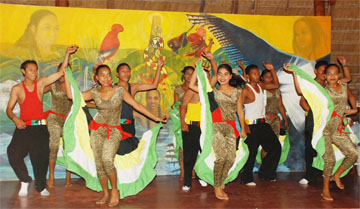Indigenous leaders from the Amazon Basin yesterday opened a meeting to frame an agenda to push the recognition of rights and sustainable growth for communities within the region.
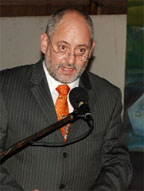
Securing the welfare of the people while balancing environmental sustainability was the challenge thrown out to optimistic delegates at the First Regional Meeting of Indigenous Affairs of the Amazon Cooperation Treaty Organization (ACTO) and Government Authorities of the Amazon Region, which was declared open at a ceremony at the Umana Yana.
ACTO is an international organization that promotes sustainable development of the Amazon Basin. It was created by the signatories to the 1978 Amazon Cooperation Treaty for the promotion of harmonious development of the Amazon Basin. The three-day meeting will draw participation from ACTO member states Suriname, Brazil, Venezuela, Colombia, Peru, Ecuador and Bolivia and Guyana. The meeting will also draw input from delegates from the Amazonian Parliament (PARLAMAZ), the Coordinating Body for the Indigenous Organizations of the Amazon Basin (COICA) and the Associacion De Universi-dades Amazonicas (UNAMAZ).
ACTO Secretary General Francisco Ruiz Marmolejo underscored the importance of a sustainable approach to development of the Amazon region, which he called the green heart of the continent.
There are 1.5 million indigenous people living in the Amazon Basin, including 420 different tribes living in isolation and initial contact. He said that as a result of programmes in member countries, indigenous territorial rights have been recognised, bringing 1.5 million square miles under some form of protection. He said the agreement of an agenda would enter the region into a new era of political dialogue.
Coordinator of ACTO’s Office of Indigenous Affairs Jan Fernando Tawjoeram explained that the agenda would be a political tool to discuss and evaluate actions and programmes for sustainable development of the first people living in the region. But COICA delegate Haroldo Salazar warned against viewing the goals of the agenda as requests for special treatment.
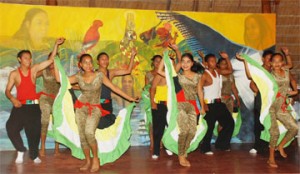
“We are not wanting any favours,” he said through an interpreter. “We want to institute our rights as members of the Amazon basin.”
Salazar also emphasised that the meeting would focus on the rights of people in addition to territories.
He noted that indigenous communities still dwell in isolation in the basin and need protection. “That is why we are working on an agenda to improve the lives of our people living in the Amazon basin,” he added.
Meanwhile, Jorge Eliecer Guevara of the Amazonian Parliament (PARLAMAZ) said the meeting was symbolic of leaders taking the initiative in the destiny of the region. To this end, he said the integration and coordination of the parliaments is essential and he pledged that they would strongly support the progress of the agenda and work together to bring its aims to fruition. “I am convinced that this meeting will give continuity to past policies, taking the future development of our communities into our own hands,” he said.
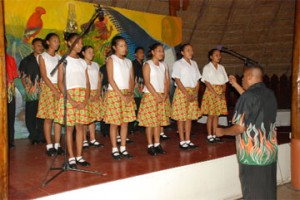
Guyana’s delegation to the meeting is being led by Amerindian Affairs Minister Pauline Sukhai. Presidential adviser Gail Teixeira and PPP/C MP Norman Whittaker are also part of the delegation as are representatives of the Guyana Geology and Mines Commission, the Guyana Forestry Commission, the Guyana Lands and Surveys Commission and the Environmental Protection Agency. Mining, forestry, land demarcation are among the critical areas that the delegation will be making input.
Prime Minister Samuel Hinds, performing the functions of President, said the development of the Amazon Basin will be crucial to Guyana’s progress. At the same time, he emphasised the valuable role that inhabiting communities have in the preservation and sustainable development of the area as well in the decision-making process.
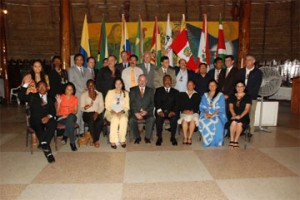
Hinds told delegates that while nothing can be done to change the past much can be done to shape the future.

